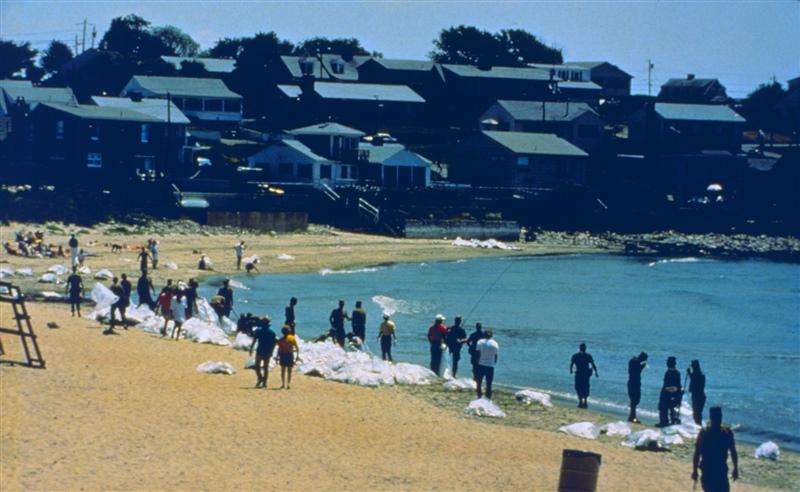This past Friday, Dennis Nixon, a professor in the department of marine affairs at the University of Rhode Island, spoke in a seminar entitled “Ships Don’t Leave Skid Marks.”
This presentation delved into Nixon’s experience working in the field of maritime forensics and the cases he has worked on throughout his career.
Nixon defined forensics as the application of scientific tools and methods to resolve questions related to civil and criminal law.
“Over time, the vast increase in moving oil by tank vessels meant that damage to the marine environment was becoming apparent to even the casual observer,” Nixon said, providing context to the current laws set in place today.
He described how the danger of oil spills has become more clear over the years, and how the introduction of gas chromatography (a tool that allows scientists to determine properties of oil) to the field, under the assistance of URI faculty, helped to identify which vessels were breaking state oil laws. He explained how the Clean Water Act of 1970 came about, along with the Oil Pollution Act of 1990 in response to unfortunate consequences of oil spills over the years.
Nixon continued by elaborating on how he had worked on the prosecution in two major cases of oil spills in Rhode Island in 1989 and 1996.
The first case was of a tanker entitled “MVWorld Prodigy”that entered Narragansett Bay in 1989 and travelled too fast into the reef. The vessel was not able to stop, and spilled 390,000 gallons of oil, covering 50 square miles. Nixon described the impact that the spill had on the environment and local beaches, as well as how situations like this were perceived by the law, having worked on this prosecution himself.
“It completely proved the inadequacy of the current law and, along with the two other spills that occurred that weekend, really made the case for why we needed this new Oil Spill Act of 1990; that’s why the law passed just weeks after,” Nixon said, explaining how this case was the root cause to the introduction of this law.
Additionally, Rhode Island became the first state to utilize the new Oil Spill Act as in 1996 the “North Cape”tugboat oil spill occurred. In this case, a ship coming from New Jersey caught on fire and washed up on the shore of Rhode Island, spilling 828 thousand gallons of fuel oil. Nixon described how the costs paid from this spill were much more intensive because of the new law set in place to help protect the environment, a cost that was fair due as the toxicity of the oil released killed a lot of local wildlife.
Nixon gave a quote from his own testimony within the case, stating that the official Rhode Island state seal is an illustration of a ship’s anchor with the word “Hope” underneath; we must do more than hope that all commercial vessels entering our waters have a working anchor system in the future, a law that was not in place at the time.
“Both the captain and company owner were charged criminally, and when all of the evidence emerged, both pleaded guilty, under the terms of the recently enacted Oil Pollution Act of 1990,” Nixon said.
Since then, there have been no major oil spills from water vessels in Rhode Island.
“Perhaps we’re just lucky,” Nixon said. “Perhaps the new liability scheme, the new regulatory requirements, and the respect our marine environment deserves will work together to provide some respite before we can make the transition to renewable energy and our new reality and stop oil spills forever.”
Nixon’s experience working in maritime forensics over the years and his assistance on two major cases in Rhode Island oil spill history have shown to have a lasting impact. The laws he helped to put in place will look to ensure the safety of the local environment in the coming years.





